There are a lot of products available on the Internet that claim to be important to your dispensing optician education. While it may be true that many of these products may have some value, they often fall short of providing more value than their cost. The products that we have listed on this page were developed to give the optician a comprehensive understanding of both the theoretical and practical aspects of the industry. We have thoroughly reviewed each of the products below to ensure that they provide a level of value that meets or exceeds their cost. We are confident that you will find these resources to be invaluable to you as a student and as a practicing optician.
Optical Dispensing
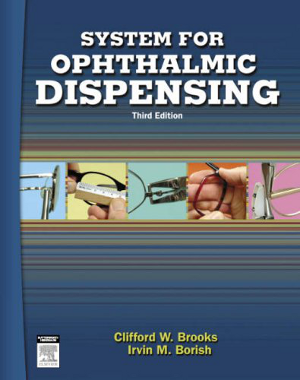 System for Ophthalmic Dispensing – This book is commonly regarded by opticians as the standard text for how to properly fit and adjust eye wear. The authors provide details about every aspect of the dispensing process from frame selection to fitting, adjusting, and repairing. Many students use this book to prepare for certification exams and state licensing exams. Practicing opticians usually have a copy of the book available for reference. The book includes in-depth discussion of lenses, including multifocal, progressive, absorptive, aspheric, atoric, safety, and high index technology. It also covers the technical features of lenses and provides a rationale for how and why an optician should select specific lenses.
System for Ophthalmic Dispensing – This book is commonly regarded by opticians as the standard text for how to properly fit and adjust eye wear. The authors provide details about every aspect of the dispensing process from frame selection to fitting, adjusting, and repairing. Many students use this book to prepare for certification exams and state licensing exams. Practicing opticians usually have a copy of the book available for reference. The book includes in-depth discussion of lenses, including multifocal, progressive, absorptive, aspheric, atoric, safety, and high index technology. It also covers the technical features of lenses and provides a rationale for how and why an optician should select specific lenses.
Additional features within this book include…
- A glossary of key terminology for easy reference
- Proficiency tests at the end of each chapter
- Full-color illustrations of procedures, concepts, and techniques
- Updated information about dispensing equipment
- Updated photos of fashionable frames and lenses
In short, this book is a must-have for anyone considering a career as an optician. The book is highly relevant regardless of the state where you intend to work or the type of employer that is providing you with a job. System for Ophthalmic Dispensing has been the standard text for optical dispensing education since its first publication and it is likely to remain the standard for the foreseeable future.
Contact Lens Fitting
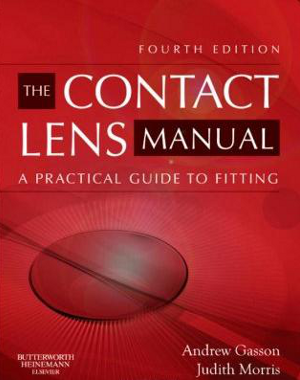 Contact Lens Manual – This guide to fitting contact lenses was written by a Andrew Gasson and Judith Morris. The book was designed to give both new and experienced opticians a comprehensive perspective of the contact lens fitting industry. Many opticians use this book to prepare for the National Contact Lens Examiners (NCLE) Certification Exams. Industry specific topics include common nomenclature, anatomy and physiology, optics, keratometry, and biomicroscopy. Contact Lens Fitting includes sections on rigid and soft daily wear lenses, contact lens manufacturing process, inspection, modification, lens delivery, follow-up, and extended wear lenses.
Contact Lens Manual – This guide to fitting contact lenses was written by a Andrew Gasson and Judith Morris. The book was designed to give both new and experienced opticians a comprehensive perspective of the contact lens fitting industry. Many opticians use this book to prepare for the National Contact Lens Examiners (NCLE) Certification Exams. Industry specific topics include common nomenclature, anatomy and physiology, optics, keratometry, and biomicroscopy. Contact Lens Fitting includes sections on rigid and soft daily wear lenses, contact lens manufacturing process, inspection, modification, lens delivery, follow-up, and extended wear lenses.
Opticians who plan to take both the ABO and NCLE certification exams are encouraged to add this book to their library of review materials. If there are two books that opticians use most to prepare for the certification process they would include System for Ophthalmic Dispensing and Contact Lens Manual. In fact, some opticians claim that study of the first half of System for Ophthalmic Dispensing is adequate preparation for the ABO Exam.
Practical Clinical Training
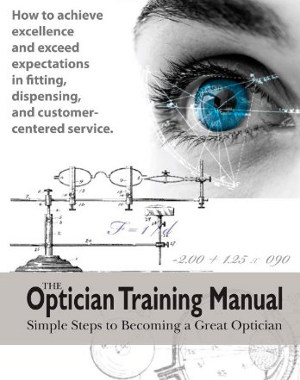 The Optician Training Manual - This book was written by David S. McCleary OD after he discovered that a concise and clinically relevant guide for optician training did not exist. David’s intent with this book is to give new and seasoned opticians the essential information that they need to start assisting customers. New opticians may have the detailed knowledge that is required to pass the ABO Certification Exam, but that does not mean that they are comfortable or confident with real situations where much of their technical knowledge cannot help them. This optician training manual was not designed to prepare opticians for the certification exams, but to teach opticians to perform well on the dispensary floor.
The Optician Training Manual - This book was written by David S. McCleary OD after he discovered that a concise and clinically relevant guide for optician training did not exist. David’s intent with this book is to give new and seasoned opticians the essential information that they need to start assisting customers. New opticians may have the detailed knowledge that is required to pass the ABO Certification Exam, but that does not mean that they are comfortable or confident with real situations where much of their technical knowledge cannot help them. This optician training manual was not designed to prepare opticians for the certification exams, but to teach opticians to perform well on the dispensary floor.
Clinical relevance is the primary purpose of this manual and it does not include the overwhelming mathematical formulas and theoretical concepts that are required for the certification examinations. The objective of this training system is to give managers and opticians the skills they need to analyze a pair of eyeglasses, select the perfect frame for the customer’s face, understand the appropriate lens options, research contact lens parameters, recognize symptoms of common eye diseases, and interact with customers to create the best experience possible.
Ophthalmic Assistant Training and Certification
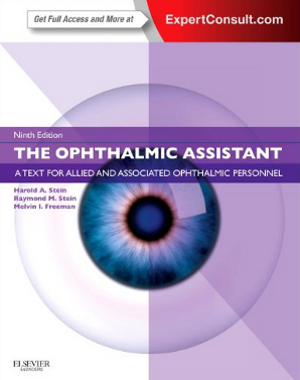 The Ophthalmic Assistant - This book was written to serve as a comprehensive tool for the clinical ophthalmic assistant. Several assistants utilize this textbook extensively whether or not they work in an optometry office, ophthalmology clinic, or optician owned establishment. Topics covered in this textbook include ocular disease, surgical procedures, medications, equipment, and office management. Over 1,000 illustrations are used as a visual guide for the identification of ophthalmic disorders and to clarify difficult concepts. The book also includes a quick-reference for record keeping, conversions, ocular emergencies, and pharmaceuticals. The comprehensive nature of this book makes it an excellent resource.
The Ophthalmic Assistant - This book was written to serve as a comprehensive tool for the clinical ophthalmic assistant. Several assistants utilize this textbook extensively whether or not they work in an optometry office, ophthalmology clinic, or optician owned establishment. Topics covered in this textbook include ocular disease, surgical procedures, medications, equipment, and office management. Over 1,000 illustrations are used as a visual guide for the identification of ophthalmic disorders and to clarify difficult concepts. The book also includes a quick-reference for record keeping, conversions, ocular emergencies, and pharmaceuticals. The comprehensive nature of this book makes it an excellent resource.
In addition to the clinical application of this book, many people choose to review its contents in preparation for certification or recertification. The full-color visual guide is helpful in identifying disorders and understanding difficult concepts. Important topics such as OCT, refractive cataract surgery, CPR, and new medications are addressed in great detail. The book also comes with full access to the content online for those who prefer easy search capability.
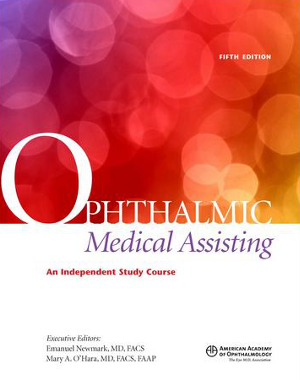 Ophthalmic Medical Assisting – This has been written by the American Academy of Ophthalmology and is recommended by the Joint Commission on Allied Health Personnel in Ophthalmology (JCAHPO) for those who plan to sit for the Certified Ophthalmic Assistant (COA) Exam. The book provides fully illustrated outlines of 44 procedures that are performed in the ophthalmic medical setting. Also included are chapters covering ocular motility, low vision, ethics, legal and regulatory issues, and community health eye care. As a way of helping reinforce important concepts, each chapter ends with a number of self-assessment questions and a handful of learning activities. The course serves as a prerequisite for the COA exam.
Ophthalmic Medical Assisting – This has been written by the American Academy of Ophthalmology and is recommended by the Joint Commission on Allied Health Personnel in Ophthalmology (JCAHPO) for those who plan to sit for the Certified Ophthalmic Assistant (COA) Exam. The book provides fully illustrated outlines of 44 procedures that are performed in the ophthalmic medical setting. Also included are chapters covering ocular motility, low vision, ethics, legal and regulatory issues, and community health eye care. As a way of helping reinforce important concepts, each chapter ends with a number of self-assessment questions and a handful of learning activities. The course serves as a prerequisite for the COA exam.
The certified ophthalmic assistant (COA) exam is an entry-level option for obtaining credentials as a certified professional in the ophthalmic specialty. COA certification is recognized by ophthalmic organizations and clinical providers. The completion of a training program followed by the passing of the certification exam demonstrates an individual’s competence and ability to perform a number of skilled clinical tasks. Many assistants are responsible for measuring acuity, administering medications, performing procedures, measuring intraocular pressure, recording pinhole acuity, testing pupils, and much more.
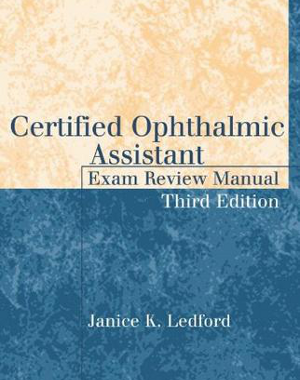 The Certified Ophthalmic Assistant Exam Review Manual - Specifically designed to match the criteria for certified assistants as is adopted by the Joint Commission on Allied Health Personnel in Ophthalmology (JCAHPO). The manual is often used by those who are preparing to take the COA exam. Included with the book are 1,400 review questions that address 19 exam headings such as taking medical histories, visual assessment, ethics, pharmacology, ophthalmic imaging, surgery, and much more. Study tips, hints, exam strategies, answers to questions, and detailed exam criteria are all included to help individuals prepare for success as they pursue formal credentials.
The Certified Ophthalmic Assistant Exam Review Manual - Specifically designed to match the criteria for certified assistants as is adopted by the Joint Commission on Allied Health Personnel in Ophthalmology (JCAHPO). The manual is often used by those who are preparing to take the COA exam. Included with the book are 1,400 review questions that address 19 exam headings such as taking medical histories, visual assessment, ethics, pharmacology, ophthalmic imaging, surgery, and much more. Study tips, hints, exam strategies, answers to questions, and detailed exam criteria are all included to help individuals prepare for success as they pursue formal credentials.

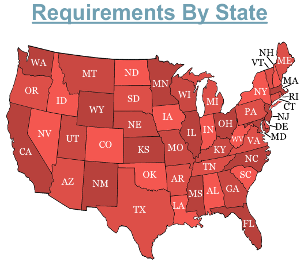

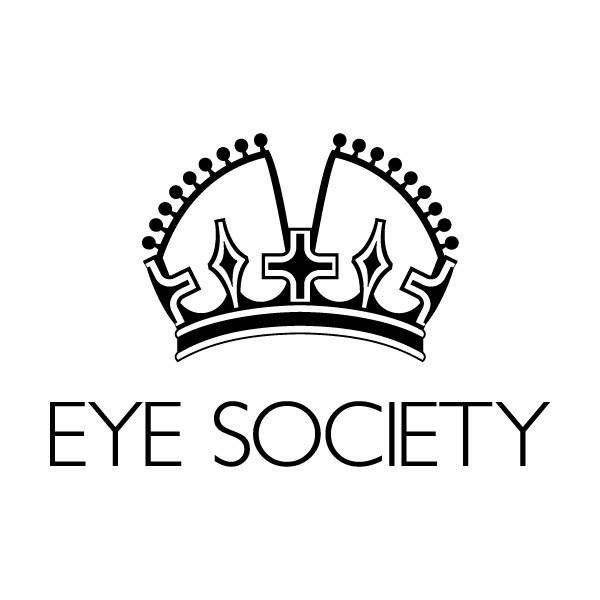

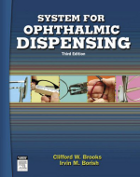
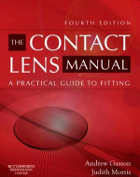
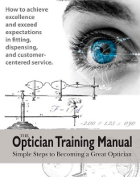
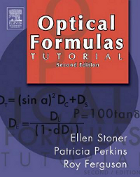
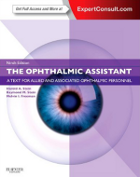
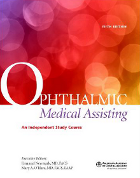
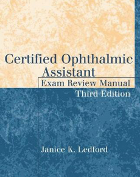
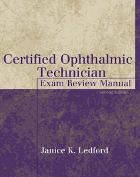
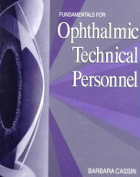
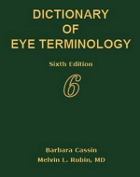
I have just graduated with my degree in Allied Health. I’m in Georgia and want to be a certified optician. What is the next step, do I just take the test or do I need more schooling?
I am located in Mississippi. What is the best book or training material to prepare for the ABO and NCLE? Can it be take online? Where do I get information about testing? Thanks!
I work at a optometrist office in New Jersey and I’m interested in becoming certified as an assistant I’m a little confused on what I need to do I’ve seen and read all these pages but I am just totally confused now any help will be appreciated thank you
7175751655
Hi, I can do everything in the optical store, If i would like to get certificate for open my own store, what license or certificate i have to get? and also I live in PA where can I take an exam?
Thank you
I’m about to take the abo exam I’ve worked in optics for years, anywhere you online I could get free study guides or tests?
I am a college student and I would like to become an optician. Which book would be the best for me to start with?
Hi H Faz,
Congratulations on choosing the optician profession! While all of the books above are helpful, System for Ophthalmic Dispensing is a great place to start because it is so comprehensive.
I live in Louisiana. From what I read and to my understanding to take the optician certification exam we can self-study without a college training program and take the exam? The closest school that offers an optician program is three hours away. Once we become certified are we eligible for employment or do we have to be an apprentice? Will employers hire someone without schooling? Is there continuing education we must complete to keep our certification?
Kim,
Yes, you can take the ABO exam without completing a training program or apprenticeship. In the state of Louisiana, you should be able to find employment without completing an apprenticeship, but expectations vary among employers and you should inquire about this when applying for specific positions. Many employers in unregulated states will hire opticians who have no formal schooling, but national certification is becoming a more common expectation. The American Board of Opticianry (ABO) does require that you complete continuing education credits in order to maintain your certification. You can learn more about CECs by visiting their certification renewal page.
Hello, My question to you would be.. What is the correct name of the profession and what course do I need to sign up with if I am only interested in cutting and measuring eyeglass lenses? Is this considered a lab tech? Thank You
Taline,
You are correct. This type of position would generally be considered that of a laboratory technician. Although there are some retail offices that still perform their own lens cutting and modifications, most establishments now outsource these tasks to optical laboratories that use automated equipment to perform modifications in an efficient and cost effective manner. Your best bet for finding a job in this setting is to inquire with lens labs and optical employers in your area about training opportunities.
Can I take the ABO and CLE after completing the 6000 apprentice required or do I need to take a class?
-John
John,
The ABO exam has no apprenticeship or classroom requirements in order to become eligible. You can learn more on our ABO certification page.
Can you do online training and certification for the Ophthalmic Technician/Assistant positions?
David,
There are self-directed study courses available that can be completed at home in order to qualify for the certification exams offered through the JCAHPO, but you may be required to complete several hours of clinical experience before you can become eligible. You can visit our certification page in order to learn more about the requirements. JCAHPO requires that the exams be completed at a Pearson VUE testing center.
I failed the NCLE exam twice before I took the online Penn Foster optician course. I performed fairly well with their system.
Greetings,
I was wondering if you have or can provide a bridge to career guideline. A training program link would be great for career advancement. I am currently a certified ABO optician and Medical Assistant. I want to expand my career and I am currently aiming for the COA certification. However, it would be great to see a career path with illustrations and graphs. Thank you for your time.
Jesse,
The COA, COT, and COMT Certification page is a great start when learning about advancement opportunities available to assistants and technicians. In addition, the Joint Commission on Allied Health Personnel in Ophthalmology (JCAHPO) has published detailed information about certification and has provided some useful illustrations for those who are wondering about the different levels of advancement. They also have a certification criteria book that you may find helpful.
Hello I am interested in following up on my career progression program. I was enrolled many years ago and now I am currently looking forward to getting my ABO Certification. My old employer was With Steve Ashinoff at Queens Long Island Medical. I am presently employed at Rochester Optical in Rochester, NY 14606.
Thank you
Evelyn,
If you are referring to the Career Progression Program offered through the National Academy of Opticianry then we would recommend contacting them about your status. We are not directly affiliated with the NAO and cannot advise on where their members stand as far as career advancement. Hope that helps.